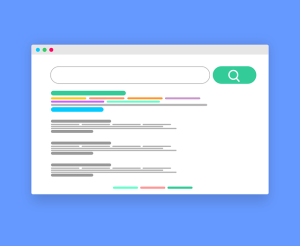SEO web design is a comprehensive strategy that marries aesthetic appeal with search engine optimization. It involves optimizing every element of a website, from content and structure to visuals and speed, to boost visibility on search engines like Google. Experts in this field prioritize keyword research, mobile responsiveness, swift loading times, and high-quality content to enhance online presence, attract organic traffic, and achieve higher search rankings. They create structured, engaging websites that align with search engine algorithms, utilizing techniques like schema markup and effective navigation for improved indexing. By focusing on user experience, these experts drive business growth by increasing traffic, lowering bounce rates, and converting visitors into customers. Off-page SEO through quality backlinks further bolsters website authority and rankings. Continuous monitoring and data analysis ensure strategies remain effective and adaptable to algorithm changes.
SEO web design experts play a pivotal role in enhancing online visibility. In today’s digital landscape, understanding how search engines crawl and index websites is crucial for business success. This article delves into the essence of SEO web design, exploring key roles, essential techniques, and strategies that experts employ. From optimizing user experiences to on-page and off-page SEO, we uncover the tactics that drive online success. Discover the tools and metrics used to measure progress, providing a comprehensive guide for businesses aiming to excel in search engine rankings.
Understanding SEO Web Design: The Foundation of Online Visibility

SEO web design is more than just creating an attractive website; it’s about crafting a digital space that search engines can easily understand and index, while also offering visitors a seamless and engaging experience. At its core, effective SEO web design involves optimizing every element of a website—from content and structure to visuals and loading speed—to enhance its visibility on search engine results pages (SERPs).
By implementing best practices in SEO web design, businesses can ensure their websites rank higher for relevant keywords, attracting more organic traffic. This includes leveraging keyword research to identify terms potential customers use when searching for products or services, incorporating these keywords naturally into content, and structuring websites with a logical hierarchy that reflects the information architecture. Additionally, mobile responsiveness, fast loading times, and high-quality content are all crucial aspects of SEO web design that contribute to both user satisfaction and search engine favorability.
Key Roles and Responsibilities of SEO Web Design Experts

SEO Web Design Experts play a pivotal role in shaping the online visibility and success of businesses. Their key responsibilities encompass a wide range of tasks designed to enhance search engine optimization (SEO) while delivering exceptional user experiences. These professionals begin by conducting thorough keyword research, identifying terms that potential customers use when searching for products or services related to the client’s business. They then strategically integrate these keywords into website content, metadata, and other elements, ensuring optimal alignment with search engine algorithms.
Beyond keyword optimization, SEO Web Design Experts are adept at structuring websites for maximum accessibility and speed. They employ responsive design principles, ensuring that sites seamlessly adapt to various devices and screen sizes. Additionally, they optimize site architecture, navigation, and internal linking structures to facilitate easier crawling and indexing by search engines. This involves enhancing page load times, implementing structured data markup, and creating XML sitemaps to provide clear guidance to search engine crawlers, ultimately leading to higher rankings and increased organic traffic.
Essential Techniques in SEO Web Design Strategy

In the realm of SEO web design, a strategic approach is paramount to enhancing online visibility and driving organic traffic. Experts in this field employ a multitude of techniques to create websites that not only captivate users but also resonate with search engine algorithms. One of the cornerstone techniques involves keyword optimization, where strategic selection and placement of keywords throughout content, meta tags, and URL structures elevate a site’s ranking potential.
Another vital aspect is ensuring mobile responsiveness, given the preponderance of mobile web browsing. Adaptive designs that seamlessly adjust to different screen sizes and devices enhance user experience and reduce bounce rates. Additionally, structured data markup and schema implementation provide search engines with invaluable context, facilitating richer snippet displays and boosting click-through rates. These techniques, when harmoniously integrated, form a robust SEO web design strategy that is both effective and sustainable in the ever-evolving digital landscape.
Creating an Optimized User Experience: A Priority for SEO Experts

In today’s digital landscape, creating an optimized user experience is paramount for any successful SEO web design strategy. SEO experts understand that users expect seamless navigation, fast loading times, and intuitive interfaces. A well-designed website not only enhances user satisfaction but also serves as a crucial factor in search engine rankings. By prioritizing mobile responsiveness, easy-to-understand content organization, and effective call-to-action placements, these experts ensure that websites are not just visually appealing but also functional and accessible across all devices.
This focus on the user experience is integral to long-term SEO success. Search engines like Google favor websites that offer a positive user experience, rewarding them with higher search rankings. As a result, SEO web design experts are adept at balancing technical optimization with creative design, fostering environments where visitors can easily find what they’re looking for and engage with the brand. This strategic approach not only drives traffic but also encourages longer dwell times and lower bounce rates, indicating to search engines that their websites are valuable resources.
On-Page SEO Optimization: What Experts Focus On

SEO web design experts don’t just build websites; they craft them with on-page SEO optimization in mind. This means ensuring every element from meta tags to image alt text contributes to boosting search engine rankings. They optimize content for relevant keywords, making it not only engaging but also search engine friendly. Experts also focus on structural elements like header tags and internal linking to create a clear navigation hierarchy, which improves user experience and helps search engines understand the site’s content better.
These professionals pay close attention to technical aspects as well, such as page load speed, mobile responsiveness, and schema markup implementation. By addressing these factors, they ensure that SEO web design isn’t just about attracting more visitors but also keeping them engaged and converting them into customers. Their goal is to create seamless user journeys that align with search engine algorithms, ultimately driving business growth through effective online visibility.
Off-Page SEO: Building Authority and Quality Backlinks

Off-page SEO is a crucial aspect of any comprehensive SEO web design strategy, focusing on actions taken outside of your website to enhance its visibility and authority. It involves building quality backlinks from reputable sources, which serve as a vote of confidence for search engines. When other high-authority websites link to yours, it signals that your content is valuable and trustworthy. This process helps establish your site’s credibility and improves its ranking potential.
One effective off-page SEO strategy is engaging in content marketing, where you create informative and engaging content that naturally attracts links from other sites. Guest blogging on popular industry blogs or contributing to online forums can also generate backlinks. Additionally, building relationships with influencers and industry leaders can lead to mentions and links from their websites, further boosting your site’s authority in the eyes of search engines.
Measuring Success: Tools and Metrics Used by SEO Web Design Experts

Measuring success is a critical aspect of SEO web design, as it helps experts understand the effectiveness of their strategies. Tools like Google Analytics are indispensable for tracking key metrics such as organic traffic, bounce rate, and average session duration. These insights provide a clear picture of how users interact with a website, enabling designers to optimize content and structure for better performance.
Additionally, SEO web design professionals rely on search engine rankings, keyword performance, and backlink profiles to gauge success. Tools like SEMrush or Ahrefs facilitate the analysis of competitors’ strategies and identify areas for improvement. By continuously monitoring these metrics, experts can make data-driven decisions, stay ahead of algorithm updates, and ensure their SEO web design efforts translate into tangible results.
